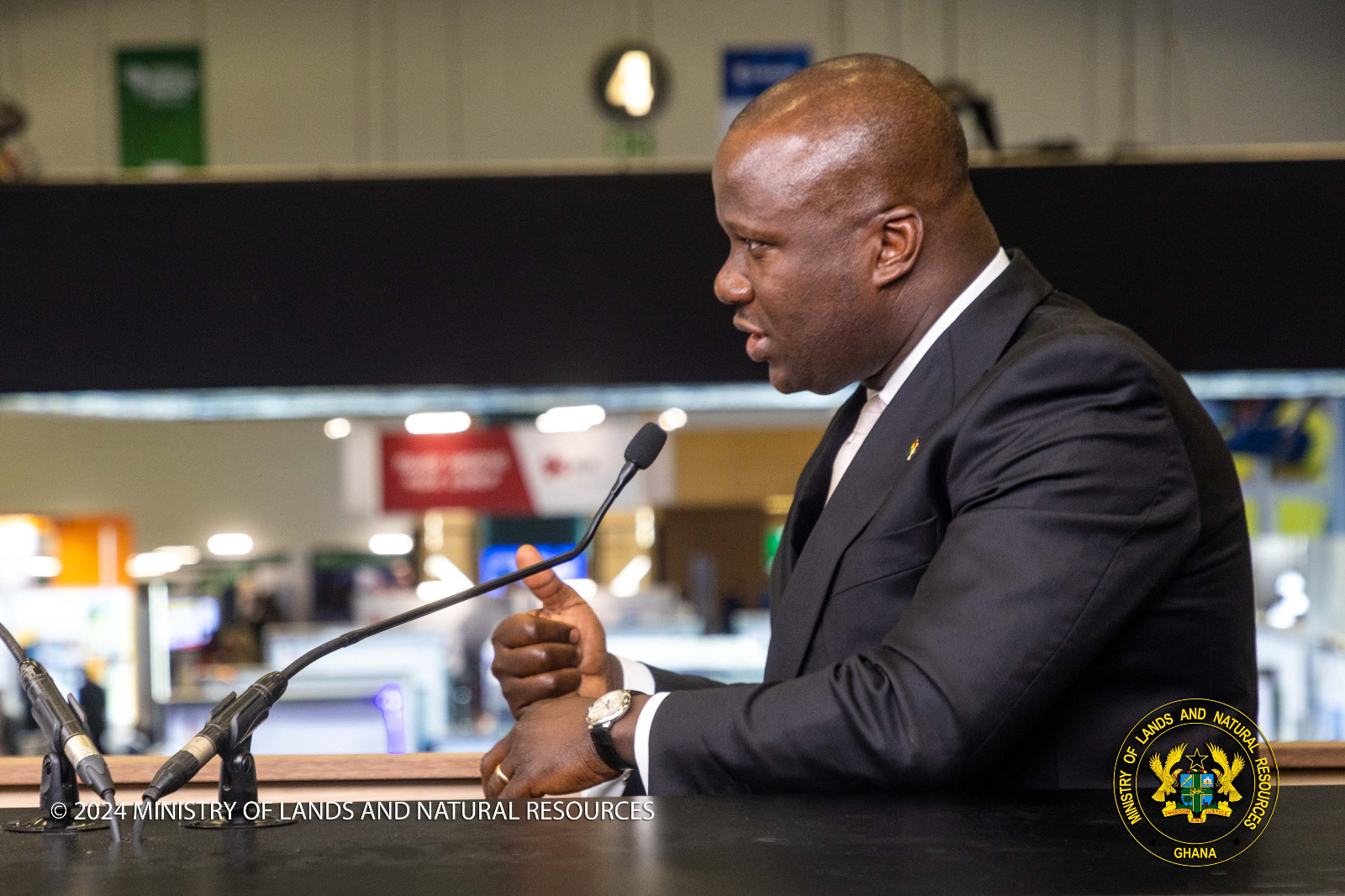
By Louis Gyimah
Introduction
Ghana has emerged as one of West Africa’s most vibrant technology ecosystems, with Accra increasingly recognized as a regional innovation hub. Building on a foundation of political stability, relatively strong infrastructure, and an educated workforce, Ghana has positioned itself as an attractive destination for tech entrepreneurs, investors, and multinational technology companies seeking to establish a presence in West Africa.
The Current State of Ghana’s Tech Ecosystem
Ghana ranks among the top African countries for ICT adoption and digital infrastructure development. According to the Global System for Mobile Communications Association (GSMA), Ghana’s mobile internet penetration reached 53% in 2023, above the Sub-Saharan African average of 28%, creating a solid foundation for digital innovation.
The country hosts more than 120 tech hubs, incubators, and accelerators distributed across major urban centers, with the highest concentration in Accra, followed by Kumasi and Takoradi. Leading organizations in this space include:
- MEST Africa: One of the continent’s most established tech incubators, providing training, funding, and mentorship to software entrepreneurs
- Impact Hub Accra: Part of a global network supporting social innovation
- Ghana Innovation Hub: A government-backed initiative promoting tech entrepreneurship
- Kosmos Innovation Center: Focusing on agritech solutions
- Google AI Ghana: Established in 2018 as Google’s first AI research center in Africa
The 2023 Africa Tech Venture Capital Report by Partech indicates that Ghanaian startups attracted over $125 million in venture funding, placing Ghana among the top five African countries for tech investment.
Sectoral Strengths and Innovations
Fintech Revolution
Ghana’s fintech sector has been the most dynamic component of its tech ecosystem. The country’s mobile money market has grown exponentially, with the Bank of Ghana reporting that mobile money transactions reached approximately $80 billion in 2022, representing over 100% of GDP. Leading players include:
- Zeepay: A mobile money service specializing in remittances across Africa
- ExpressPay: A payment aggregator connecting consumers to services
- Dash: A unified payments app that raised $32.8 million in 2022, one of the largest seed rounds in African tech history
The introduction of Ghana’s universal QR code payment system (GhQR) in 2020 has further accelerated digital financial inclusion, while the e-Cedi central bank digital currency pilot represents Ghana’s ambitions to lead in digital finance innovation.
Agritech Innovation
With agriculture employing nearly 30% of Ghana’s workforce, agritech has emerged as a critical sector for technological innovation:
- Farmerline: Provides market information, weather forecasts, and financial services to over 800,000 farmers across Ghana
- AgroCenta: Offers an online marketplace connecting smallholder farmers directly to markets
- Complete Farmer: A crowd-farming platform enabling global citizens to own and manage farms remotely
These innovations help address critical challenges in Ghana’s agricultural sector, including fragmented supply chains, limited access to markets, and climate vulnerability.
Healthcare Technology
Ghana’s health tech startups are addressing accessibility and quality challenges in healthcare delivery:
- mPharma: Manages prescription drug inventory for pharmacies and their suppliers
- MinoHealth AI Labs: Uses artificial intelligence to improve diagnosis of conditions like tuberculosis, malaria, and pneumonia
- Redbird: Provides rapid diagnostic tests through pharmacy-based testing services
The COVID-19 pandemic accelerated adoption of telemedicine platforms, with services like Zipline’s medical drone delivery system expanding to cover approximately 2,000 health facilities across Ghana.
Emerging Sectors
Additional areas seeing significant growth include:
- Edtech: With startups like Kidato offering affordable, high-quality education solutions
- Proptech: Companies such as meQasa and Estateintel digitalizing real estate transactions
- Green technology: Innovations addressing renewable energy access and climate resilience
Enabling Factors for Ghana’s Tech Rise
Government Policy Support
Ghana’s government has implemented several initiatives to nurture the tech ecosystem:
- The National Entrepreneurship and Innovation Programme (NEIP) provides training, incubation, and funding for startups
- Ghana Innovation and Research Commercialization Centre (GIRC) bridges the gap between research institutions and industry
- The Ghana Tech Lab builds digital skills across the country
- The Ghana Startup Act, currently under development with stakeholder input, aims to provide a comprehensive legal framework for startups
Additionally, the country’s Digital Ghana Agenda focuses on developing digital infrastructure, enhancing digital skills, and promoting e-government services.
Digital Infrastructure Development
Ghana has made significant investments in digital infrastructure, including:
- Extension of 4G coverage to 95% of populated areas
- Completion of the 2,000km Eastern Corridor Fiber Optic Network Project
- Development of multiple submarine cable connections (including the recent 2Africa cable)
- Establishment of the Ghana Technology Park in Accra
According to the International Telecommunication Union (ITU), internet penetration in Ghana reached 58% in 2023, significantly higher than the African average of 36%.
Educational Initiatives and Talent Development
A key strength of Ghana’s tech ecosystem is its focus on talent development:
- Universities like Ashesi University and Kwame Nkrumah University of Science and Technology (KNUST) have developed specialized technology and entrepreneurship programs
- Ghana Code Club and similar initiatives introduce coding to children from an early age
- International partnerships with organizations like World Bank, Mastercard Foundation, and UNICEF support digital skills development
- Private training academies like Developers in Vogue and Codetrain address skills gaps in the industry
Regional and Continental Integration
Ghana’s position as a tech hub is reinforced by its active participation in regional and continental initiatives:
- Headquarters of the African Continental Free Trade Area (AfCFTA) Secretariat in Accra, facilitating cross-border trade and digital services
- Participation in the Smart Africa Alliance, working toward a single digital market
- Launch of the Pan-African Payment and Settlement System (PAPSS) facilitating cross-border transactions
These connections position Ghanaian startups for scaling across African markets, with companies like mPharma already operating in multiple countries including Nigeria, Kenya, and Zambia.
Challenges and Opportunities
Current Challenges
Despite impressive growth, Ghana’s tech ecosystem faces several challenges:
- Access to finance: High domestic interest rates (above 30%) and a cooling global venture capital environment have constrained funding
- Macroeconomic challenges: Recent inflation and currency depreciation have affected business operations and market growth
- Digital divide: Significant urban-rural disparities in internet access and digital literacy
- Infrastructure gaps: Unreliable electricity and internet connectivity in some areas
- Talent retention: Competition for skilled developers and engineers with global tech companies
Emerging Opportunities
Several trends present opportunities for further growth:
- AI and data science: Growing adoption of artificial intelligence solutions across sectors
- Climate tech: Innovations addressing climate adaptation and renewable energy access
- Web3 technologies: Blockchain applications for financial inclusion, supply chain management, and land registration
- Digital health expansion: Telemedicine and health tech solutions reaching underserved populations
- E-government services: Digitalization of government services creating opportunities for public-private partnerships
International Partnerships and Investment
International partnerships have been crucial for ecosystem development:
- Tech giants: Google, Microsoft, IBM, and Meta have all established programs or partnerships in Ghana
- Development partners: World Bank, USAID, GIZ, and DFID support various digital development initiatives
- Diaspora engagement: Ghanaian tech professionals returning from abroad bring expertise and connections
- International investors: Y Combinator, 500 Startups, and Founders Factory Africa have invested in Ghanaian startups
The U.S.-Ghana relationship has been particularly significant, with initiatives like the recently launched Digital Transformation Centre supporting Ghana’s digital economy growth.
Future Outlook
Ghana’s tech ecosystem is poised for continued growth, driven by:
- Implementation of the Ghana Startup Act, expected to create a more enabling environment for technology entrepreneurship
- Expansion of 5G infrastructure, with commercial services launched in 2023
- Growing integration with the wider African digital economy through AfCFTA
- Increasing focus on specialized tech education and research
According to the International Trade Administration, Ghana’s IT sector is projected to grow at an annual rate of 10% over the next five years, outpacing overall economic growth.
Conclusion
Ghana’s emergence as West Africa’s innovation hub represents a convergence of favourable factors: strategic government policies, infrastructure investments, talent development initiatives, and international partnerships. While challenges remain, particularly in financing and infrastructure reliability, the ecosystem shows remarkable resilience and growth potential.
As Ghana continues to develop its technology capabilities, its position as a gateway to West African markets and a testing ground for innovations relevant to emerging economies worldwide is becoming increasingly established. Through continued focus on inclusive digital development and cross-sector innovation, Ghana’s tech ecosystem can drive economic transformation not just domestically but across the wider region.
The post Tech Startups in Accra: How Ghana is Becoming West Africa’s Innovation Hub appeared first on The Business & Financial Times.
Read Full Story














Facebook
Twitter
Pinterest
Instagram
Google+
YouTube
LinkedIn
RSS